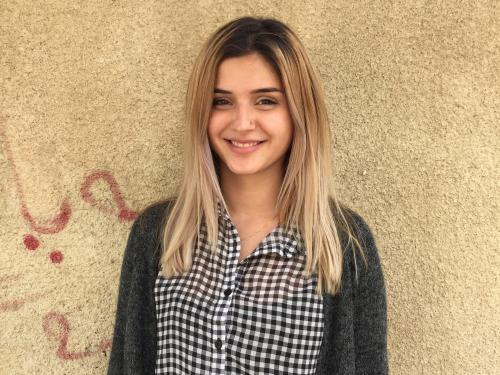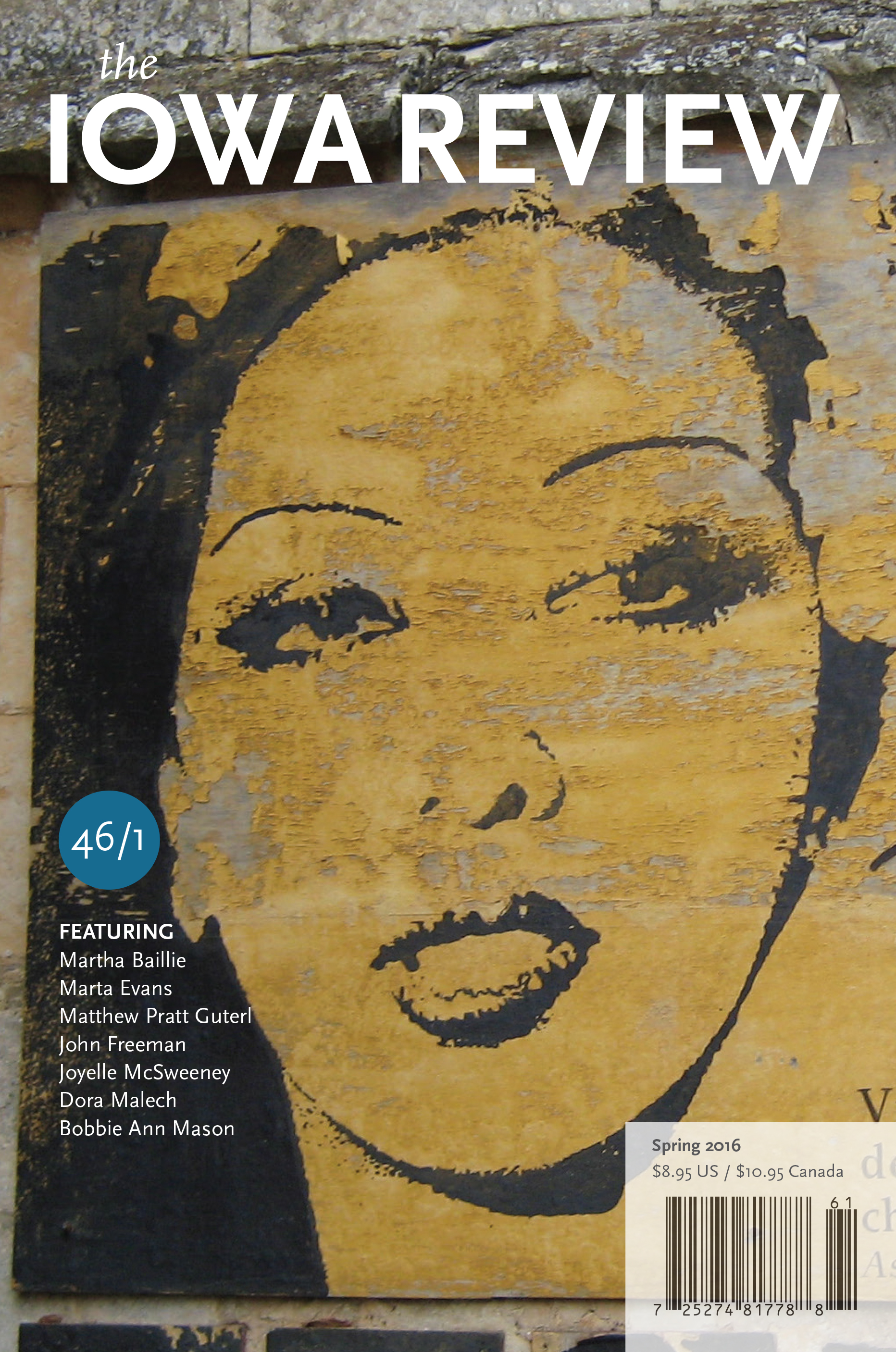
This poem is part of our spring issue's "Rising Poets of Iraq" dossier, edited by Alana Marie Levinson-LaBrosse.
Three heavy books and a laptop in one hand, the phone in the other, I walked into the cafeteria. A table with white A4 papers, magic markers, and duct tape stood by the door. The two students running the table laughed hysterically about some professor they didn’t like. Cameras and other students crowded the table. As I came closer, I saw the signs. Different words, same thought. “Our hearts are with Kobane,” “We are all Kobane,” “Kobane is not alone.” A guy approached the table, smiling and laughing with his friends. He wrote a sign, played around with his girlfriend. A photographer told him it was his turn. His sign read, “My heart bleeds for Kobane.” Laughing, he stood for the photographer, who counted down to the shutter. His mournful frown appeared.
II
We praise you. We idolize you. We are all Peshmerga. We are all Kobane. We sit in our air-conditioned living rooms, drinking tea and making inappropriate jokes, and a wave of sadness hits us as we watch the latest news. It’s a wave: at times it hits forceful and fast, at other times, slow, more gradual. Either way, a wave: it passes. But we are all Peshmerga. We lie on our beds with our laptops in tow, another cup of tea, we share the latest news about another horrendous struggle in Kobane. We are furious at the world, at humanity, at our government. We complain about their silence. We share more updates, more statuses on Facebook, Twitter, write another complaint. A breeze sweeps into our thoughts and we thank God for blessing us with all that He has. We are blessed to not be in battle. Another update, another rage. Close the laptop and vow to not look at gruesome images anymore. We drive to dinner feeling reenergized and blessed. On the way, a group of Traffic Police and Peshmerga stop us, ask for our registration and driver’s license, expired, and fine us. We resent them. We swear. We are all Peshmerga. We are all Kobane.
*
Author Bio
Alka’s life began in instability. Her father was abusive. While pregnant with Alka, her mother threatened to immolate herself if he didn’t stop. He thought the threat empty. He laughed. He tossed her a book of matches.
For three months, Alka’s mother lived under a glass shield. With seventy-five percent of her body burned, the doctors all agreed she should abort the child still in her womb. Her family agreed. She refused. Carrying Alka to term, she underwent the operations and courses of medication.
Her husband, chastened, apologized. The couple stayed together. Only when he took a second wife in secret did Alka’s mother divorce her father, a man whose face Alka does not remember. Mother and daughter moved to Sweden for the advanced medical treatments available, and Alka, at three years old, began the process of learning Swedish and English in addition to her Kurdish.
Alka remembers looking forward to the big book sale held each year. She and her mother would go first thing in the morning. Her mother noticed her love of reading and encouraged her. Whenever a book interested Alka, her mother would buy her more books just like it. Her collections of books on galaxies and dinosaurs grew. She started writing stories: “They didn’t really make sense, and they consisted mostly of drawings: weirdly proportioned girls with square torsos, long legs, and squiggly hair. As soon as I learned to form complete sentences, I started writing.” Her mother kept them all.
Until college, she stayed away from writing poetry. She had idea after idea, but then she would read a poet she loved, T.S. Eliot, for example, and think, “How will I ever be Eliot?” As a member of the poetry workshop, she began to write. She realized, “Poetry doesn’t have to be great poetry. It just has to be from a genuine place in the poet.” Her own “genuine place” is complicated, she admits: “I struggle with emotions. I have them, but I can’t identify them within myself—what they are.” Her friends often tease her about having no emotions at all. Alka can stand apart from her own emotions. She tries to explain: “I absorb things. I don’t judge them. I let them be.”
In Elizabeth Bishop she found a poet who, like her, could look carefully at the world around her and see tangible ways to speak to the abstract. “The fish,” Alka explains, “doesn’t necessarily mean more than a fish. Yet, with every line focused on the body of the fish, the poem speaks more about the poet than the fish.” As Alka turned her attention to the world around her, an Iraq as the second Gulf War came to an end, an Iraq as the Islamic State came into being, as Syria devolved into civil conflict, she kept reading Bishop. “Bishop’s not scared,” she says, “even when she’s unsure.”
She maintains that until this year, she didn’t feel close to war. In 2003, when Americans were considering the war, she was happy, along with her fellow Kurds. She protested with others against Saddam. When he was overthrown, she and her friends celebrated in the street. Other than that, the war felt to her like a stream of steady numbers. “Sometimes a particular story would hit me. Most of the time, I was not aware.” It is the more recent activity with the Islamic State that shocked her. “The American invasion,” she says, “was not a shock. I don’t mean to take the pain from it away, but people were expecting it.” The atrocities that began in Shingal and have visited Erbil and are now focused in Mosul were like earthquakes that hit the Kurdish region. Alka, a teacher, had a Christian student, a sweet student. All summer, she would look at him and think, “It could be him. All these people, killed for their ethnicity or religion. His only advantage is geographical.” That hit her hard. “That’s how close this summer was,” she says. “Our lives felt suddenly unstable.”
